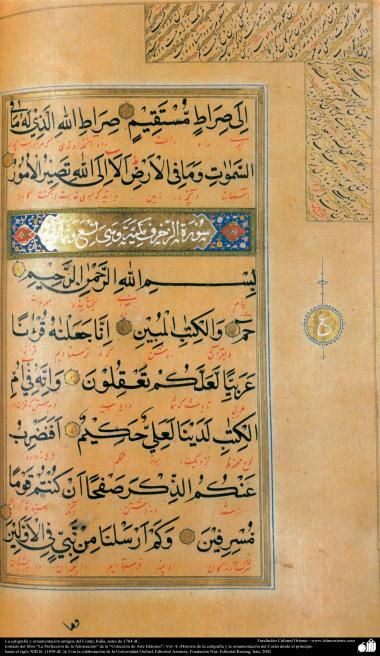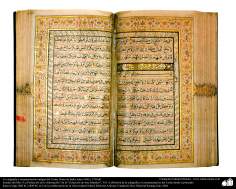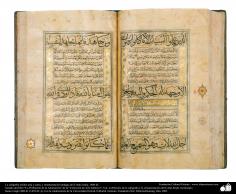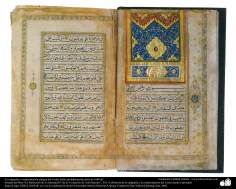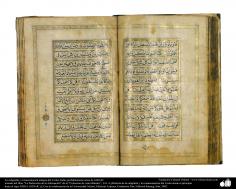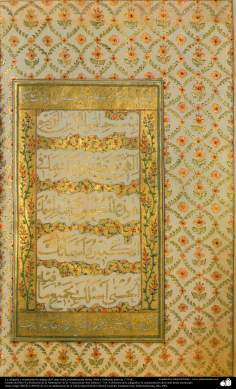-
Islamic Art
-
Arquitecture
-
Islamic Arquitecture
- Arte & Islamic Architecture in painting
- Islamic mosaics and decorative tile (Kashi Kari)
- Islamic Mogarabas (Moqarnas Kari)
- Arte con espejos incrustados (aine kari)
- City of Isfahan - Iran
- City of Mashhad - Iran
- City of Shiraz - Iran
- From other cities of Iran
- Mecca and Medina – Saudi Arabia
- City of Agra - India
- Persian Preislamic Arquitecture
-
Islamic Arquitecture
-
Persian Miniature
- Miniatures by Prof. M. Farshchian
- miniatures by Hayy Agha Emami
- Miniatures by Prof. Husein Behzad
- Miniatures by Professor M. Mehregan
- Miniatures by different artists
- Miniatures of the Book “Muraqqa-e-Golshan
- Miniatures of books of Poet Sadi, “Bustan”, “Golestan” and “Colections”
- Miniature of the books of Poet Nezami Ganjavi
- Miniatures of different books
- Miniatures of the Book “Zafar Name Teimuri”
- Miniatures of different editions of Shahname by Ferdowsi
- Miniature in Mural
- Tazhib (Ornamentation of valuables pages and texts)
-
Islamic Calligraphy
- Kufic Calligraphy – Kufic Style
- Islamic Calligraphy – “Diwani” Style
- Islamic Calligraphy – “Naskh” Style
- Islamic Calligraphy – “Nastaliq” style
- Islamic Calligraphy – “Muhaqqeq” and “Roga” Styles
- Islamic Calligraphy “Zuluz” Style
- Islamic Calligraphy – “Tawqi” style
- Calligraphy of Bismillah
- Quranic Calligraphy
- Illustrative Calligraphy
- Antique editions of the Holy Quran from early times to XIII hiyri (XIX d.C).
-
Handicrafts
- Handicrafts – traditional blocking (stamping) (Chape Qalamkar)
- Handicraft – Marquetry and Decoration of objects (Jatam Kari)
- Handicraft – Enamel (Mina Kari)
- Handicraft – Textile Art – Persian Carpets
- Persian Handicraft – Bone Painting
- Handicraft – Engraved in metal (Qalam Zani)
- Handicraft – Taracea (Marquetry)
- Weapons and decorated enamelware
- Paintings
- Islamic Pottery- Islamic ceramics
-
Arquitecture
- Muslim Woman
- Holy Places of Islam
-
Poster
- Caricature
La calligraphie, c’est l'écriture avec la beauté. La calligraphie a toujours été considéré comme l’art le plus haut dans tous les pays islamiques. Empruntée aux Arabes depuis le Xe siècle, l’écriture persane, très imparfaite dans sa notation phonétique de la langue persane, a su mettre à profit ses ambiguïtés graphiques pour développer, à des fins poétiques, des recherches d’esthétique formelle.
Elles ont abouti à une fructueuse réflexion sur l’écriture qui devait naturellement encourager l’épanouissement de l’art calligraphique.
Lié au respect de la parole sacrée du Coran, cet art s’impose aussi en raison de l’importance de l’art du livre dans les cours de culture persane où, depuis le Moyen Âge la tradition culturelle associe la figure du prince lettré, du calligraphe et parfois aussi du poète.


